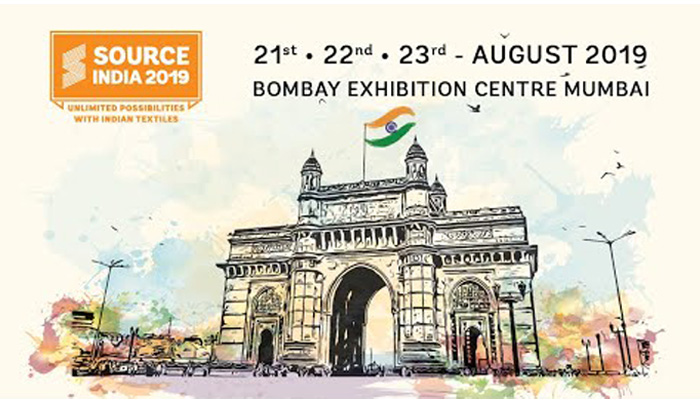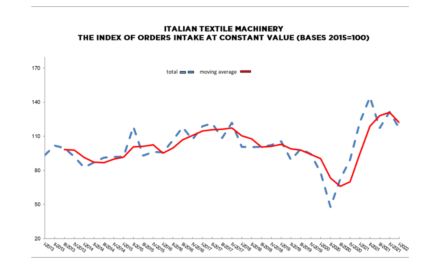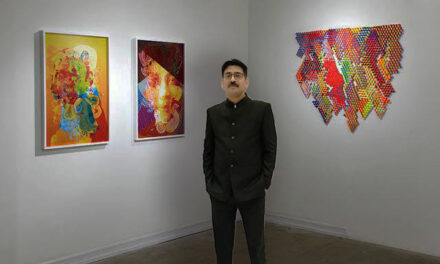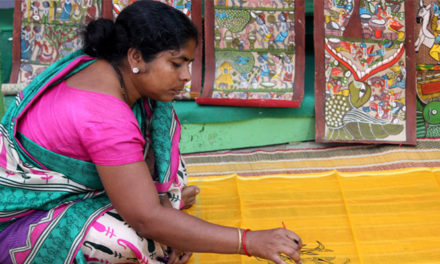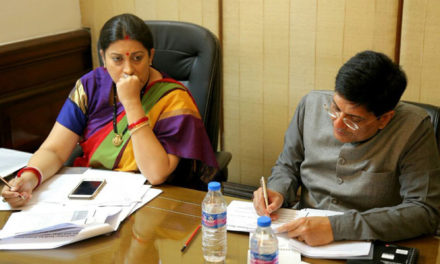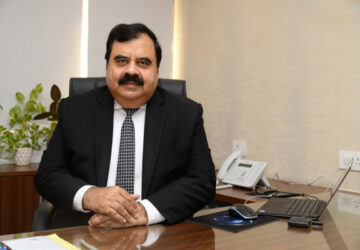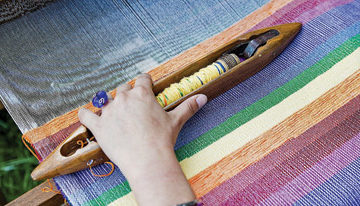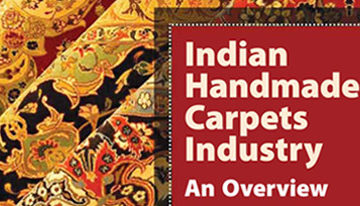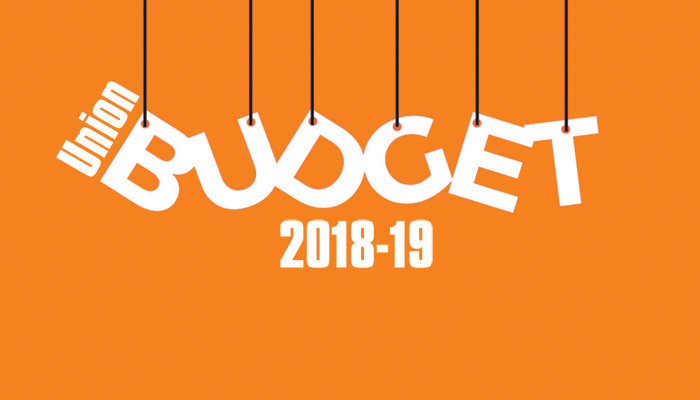The Synthetic & Rayon Textiles Export Promotion Council (SRTEPC) is organising 4th edition of its flagship exhibition ‘Source India 2019’ in Mumbai from August 21-23, 2019. During the 3 day Source India 2019, over 125 top man-made fibre (MMF) Indian companies will be exhibiting their latest range of synthetic and rayon textile items including fabrics, yarn, made-ups, fibre, home textiles and technical textiles. Around 180 leading buyers from 40 countries and 20 international buying houses will be visiting Mumbai during Source India 2019 to place orders for forthcoming season.
With a view to protect the ecology and environment, the demand for man-made fibre (MMF) textiles all over the world is increasing as a substitute for cotton amidst changes in global fashion trends. Currently MMF dominates global textile fibre consumption with 72: 28 ratio i.e MMF 72 per cent and 28 per cent is natural fibre. The share of MMF has been steadily increasing due to the cutting-edge technology, its durability and sustainability concerns.
“Our Council, established in 1954 has spearheaded India’s export focus on ‘Man-Made Fibre’ industry and with our efforts, the exports have grown to contribute 16 per cent of the textile and clothing exports from India (in value terms) in 2018-19. We contribute 2 per cent to India’s GDP and employ more than 18 mn people directly and more than 20 mn people indirectly. We export entire MMF textile value chain including fibre, yarn, fabrics and made ups to nearly 140 countries. More than 60per cent of our exports are of value-added items such as made ups and fabrics,” said Chairman of SRTEPC Ronak Rughani.
Talking about emerging global trends in MMF, Rughani added, “globally increasing price volatility, durability and sustainability concerns have made leading fashion brands to gradually shift the fibre mix in favour of synthetic fibres, especially polyester and viscose. Improvement in technical properties of MMF has also supported this shift.
“We are seeing a definite trend of higher share of polyester and viscose fibre in shirting and suiting fabrics, especially as blend with cotton. There is also a trend of using lower GSM fabric for sarees and other traditional dresses.
There has been a continuous rise in the number of working women in organised sector and this has not only increased the consumption of western office wear but also dresses suitable for party wear. Fabrics with 100 per cent MMF content or in blend with other natural fibres are very much suitable for such products.
Millennials all over are trying hard to remain fit and active. Consumer is getting fitness conscious and opting for sports and physical exercises due to which they look for clothing with combination of comfort and performance. Manmade fibre and yarns are the dominant in activewear market and most of the international brands are preferring MMF due to their functional properties like durability, stretching, waterproofing, stain resistance, fire-retardant, moisture absorbent, sustainability, technical advancement, etc.
SRTEPC also sees Uniforms as a growing market. Increasing number of school going children, usage of different uniform for different days by many private schools and usage of uniform by increasing number of schools are making this segment to grow. Corporates are also increasingly becoming image conscious and using uniforms, especially for consumer facing activities. Polyester based fabric of higher GSM is used in such garment construction and demand of such fabric will grow significantly in coming years.
Technical textile market is still at a nascent stage in India and almost all categories will observe significant growth in coming time, which will lead to increased usage of different types of fibres. Fibre composites containing carbon fibre-reinforced plastic is the advance material innovation for light weight savings and shall have more advantages.”

